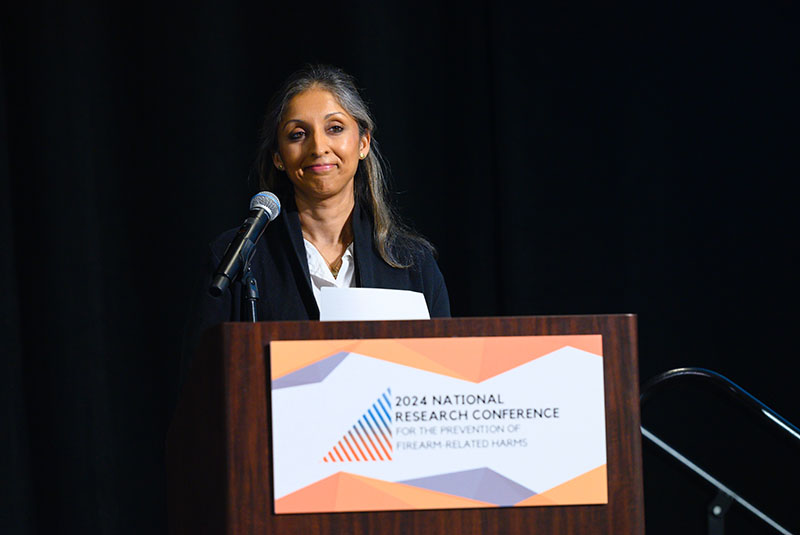Experts with the Regional Gun Violence Research Consortium (RGVRC) address different facets of firearm violence from a variety of perspectives and disciplines. In this series, get to know our experts and learn more about their contributions to better understand, prevent, and respond to the public health crisis of firearm violence. Meet Sonali Rajan, an inaugural member of the RGVRC and a professor of health education in the Department of Health and Behavior Studies at Teachers College, Columbia University.
What is your research focus related to gun violence? What are you currently researching?
I am a school violence prevention researcher studying gun violence, K-12 school safety, and adverse childhood experiences. I’m currently co-leading research specifically in these areas funded by the National Institutes of Health and the Centers for Disease Control and Prevention. For the past year, I have been serving on a National Academies [of Science, Engineering, and Medicine] committee conducting a consensus study on the impacts of active shooter drills on children, school staff, their health, and well-being. And over the past two years, I served as the founding president of the Research Society for the Prevention of Firearm-Related Harms, which afforded me a unique and wonderful perspective on our field as a whole. My research is focused on how to best create healthy and safe environments where children can optimally learn, particularly in the face of the firearm violence crisis in the US. Among many things, I’m especially interested in understanding youth exposure to firearm violence as an adverse childhood experience and identifying the differential impacts of childhood exposure to firearm violence across developmental stages.
Why do you study gun violence? Why is this an important area of research and how do you see your work helping to address this issue?
I have been studying firearm violence for over a decade. I was originally trained as a school health researcher, where my research and its applications were dedicated to understanding the connections between health and learning among children and the unique and critical role of K-12 schools in promoting positive outcomes among kids. However, I quickly realized that feeling and being safe and secure (whether in schools, at home, at the playground, on the way to and from school, etc.) was so clearly foundational to every positive child health, developmental, and learning outcome I was trying to address. I decided then to pour my energy into doing all I could to understand how to meaningfully prevent firearm violence in K-12 schools, contribute to the growing evidence base regarding which school safety policies and practices are truly effective, and also make sense of all the ways in which children in the US experience firearm violence, its many impacts, its inequities, and the specific programmatic and service needs that school communities have in the aftermath of exposure to firearm violence. Over the past several years, I have been so privileged to do this work with an extraordinary team of colleagues. And I am enormously grateful for our growing research field, which I have found to be just so generous and collaborative.
What do you hope that people can take away from the research you are conducting?
My hope is that the research my colleagues and I are engaged in will allow us to equitably center the needs of all children and inform specific actions that schools, communities, and policymakers can and should urgently take to reduce firearm violence exposures and ensure opportunities for children to thrive.
Learn more about Sonali and her work for the Regional Gun Violence Research Consortium below.

